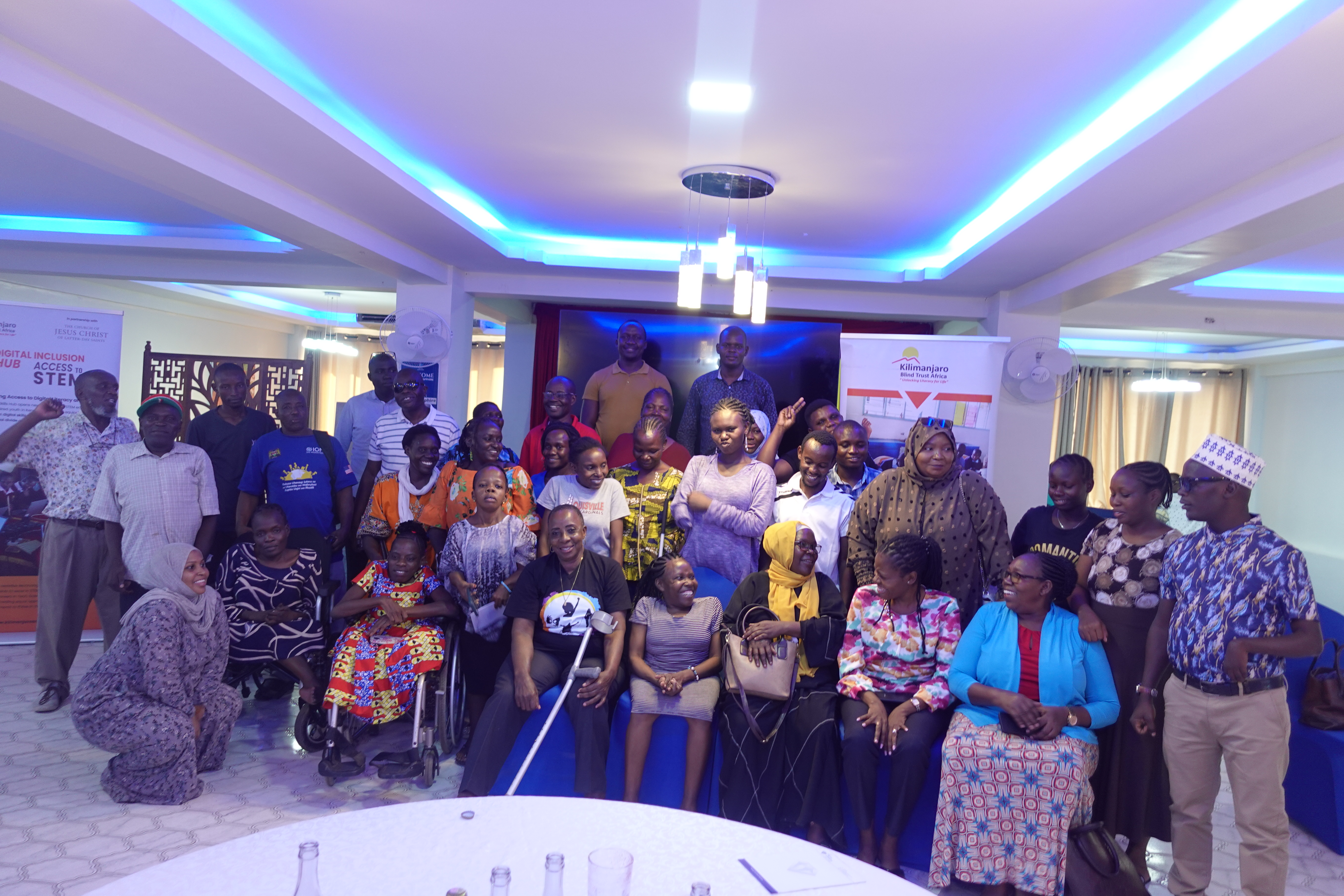OPD Capacity Building for a Disability Inclusive Future Kenya Project Report
Executive Summary
Kilimanjaro Blind Trust Africa (KBTA), in partnership with the Global Disability Innovation (GDI) Hub as part of the AT2030 programme, funded by UK International Development, implemented a project to strengthen the capacity of Organisations of Persons with Disabilities (OPDs) to enhance their advocacy, organisational effectiveness, digital literacy, and skills in assistive technologies (AT). To support this initiative, Kilimanjaro Blind Trust Africa (KBTA), led by Global Disability Innovation Hub, carried out a comprehensive needs assessment in three counties —Nairobi, Mombasa, and Kisumu — to identify the challenges OPDs face in these regions. The needs assessment gathered actionable insights that informed the development of targeted capacity-building interventions for OPDs.
The needs assessment included focus group discussions and a country-wide survey. Representatives from 84 OPDs across the three counties participated in focus group discussions, and 209 OPDs participated in a needs assessment survey. The results show key challenges OPDs face, including limited access to assistive technologies and digital skills, insufficient policy engagement, and access to funding sources. OPD representatives also highlighted that resource constraints, inadequate leadership and governance, poor access to critical information, limited opportunities for collaboration, particularly with the private sector, and a lack of platforms for knowledge-sharing and advocacy further exacerbate these issues. These challenges significantly impact the ability of OPDs to serve persons with disabilities and advocate for disability rights and access to AT.
The assessment also showed regional disparities in terms of OPD capacity and access to resources. Urban OPDs in Nairobi and Mombasa are generally better equipped compared to their rural counterparts in Kisumu, revealing an uneven distribution of resources across regions. Collaboration and networking emerged as a critical need across all regions, with participants stressing the importance of building stronger networks to amplify collective impact. Leadership support was another pressing issue raised by OPD representatives, who highlighted the need for targeted assistance to help OPD leaders build leadership and management skills. Furthermore, there was a strong demand for capacity-building initiatives to promote digital skills, advocacy, resource mobilisation, and governance to enhance the operational efficiency and sustainability of OPDs.
The needs assessment led to several key recommendations. These include strengthening OPD advocacy and policy engagement through training and simplified tools, enhancing access to assistive technologies through partnerships and user training, and building organisational capacity through leadership, governance, and financial management programs. Other recommendations included prioritising training to access funding sources, digital skills development, storytelling and advocacy tools for increased online and offline engagement, and the creation of platforms for collaboration and networking with stakeholders.
Building on these insights and recommendations, KBTA and GDI Hub conducted a series of capacity-building workshops, which included bespoke training for OPDs on mobile-based AT and digital skills, grant writing, storytelling for advocacy, and leveraging generative AI-based systems to support access to information and strengthening organisational capacity. Ten OPD representatives also participated in interviews, sharing their experience and motivations for advocating for disability rights and the impact of capacity building and networking for OPDs This report sets the foundation for designing and implementing solutions to address the identified gaps. By addressing these needs, KBTA and GDI Hub aim to foster sustainable growth for OPDs, empowering them to better represent persons with disabilities in their communities.

A group photo of the OPD meetings in Mombasa.